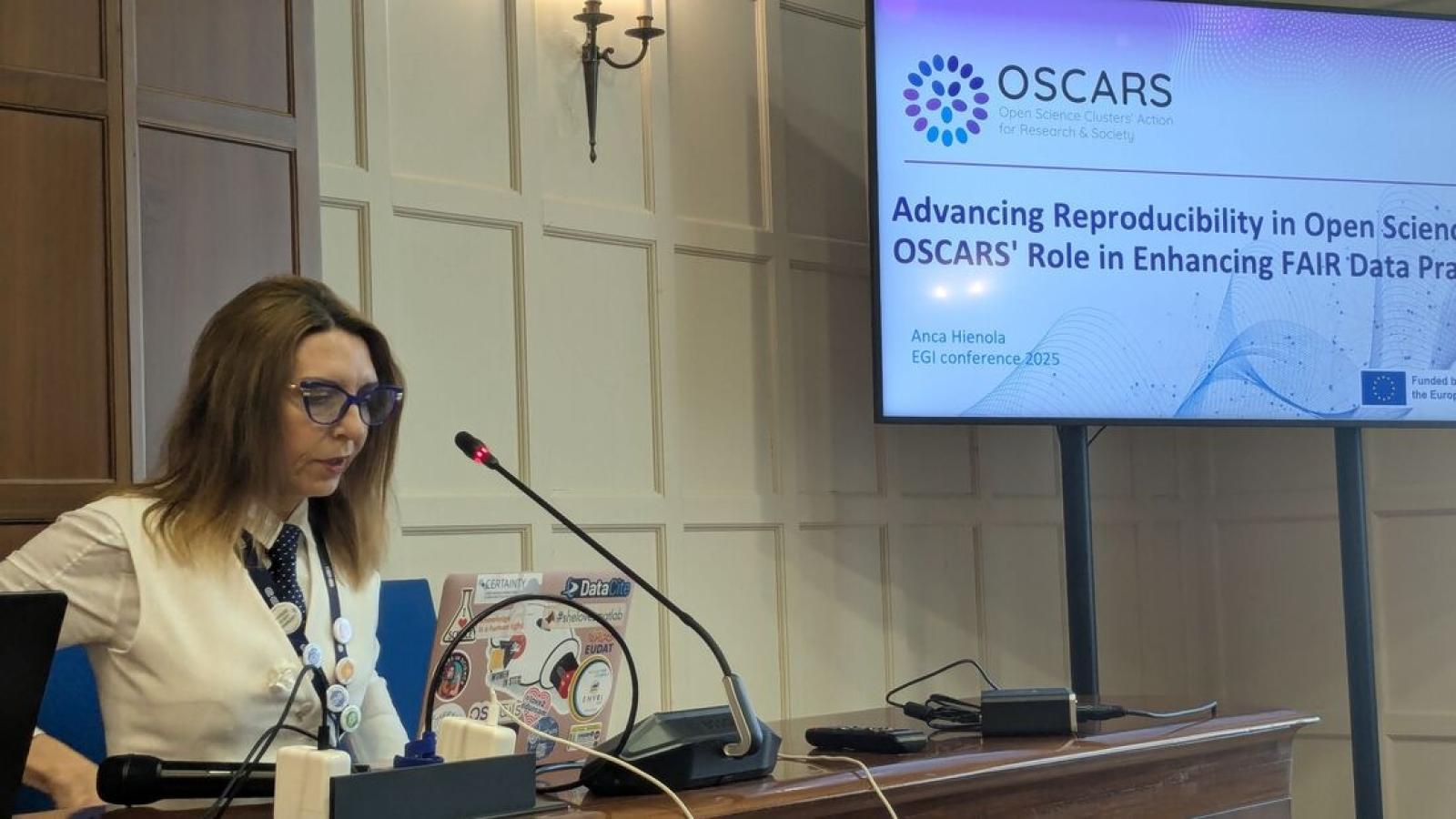
On 4 June 2025, the OSCARS project was featured at the EGI Conference 2025 during the session titled “Advancing Reproducibility in Open Science: OSCARS' Role in Enhancing FAIR Data Practices”.
The conference, known for bringing together international scientific communities, computing and service providers, European projects, security experts, community managers, and policymakers, provided an excellent platform for exchanging knowledge on data-intensive research and innovation in a trusted and inclusive environment.
Anca Hienola (Finnish Meteorological Institute), representing the ENVRI Science Cluster and co-leader of OSCARS Work Package 3: Testing and Widening Uptake, introduced the aims and achievements of the OSCARS project. In her presentation, she emphasised the project’s central role in promoting FAIR (Findable, Accessible, Interoperable, and Reusable) data practices across scientific disciplines.
OSCARS directly supports community-led initiatives that are transforming how research data is managed, shared, and reused. By building upon the collective expertise of Europe’s five Science Clusters — ESCAPE (Astronomy, Nuclear and Particle Physics), ENVRI (Environmental Sciences), LS RI (Life Sciences), PaNOSC (Photon and Neutron Science), and SSHOC (Social Sciences and Humanities) — the project is actively shaping research practices that are transparent, verifiable, and designed for practical implementation.
A concrete example of this impact was showcased through the presentation of HOMEROS, one of the projects funded under the first OSCARS Open Call. Angeliki Adamaki, member of the HOMEROS team, detailed how the initiative assists research groups in embedding FAIR data management into their workflows. This is achieved through the integration of Research Infrastructure services (such as ENVRI-Hub and the EPOS Platform) with e-Infrastructure tools including the EOSC EU Node, Zenodo, and Argos DMP.
By streamlining these tools into everyday research processes, HOMEROS demonstrates how FAIR data management enhances data sharing, reproducibility, and collaboration, ultimately improving research quality and integrity. Furthermore, the project illustrates how embedding robust data practices can support a more open and collaborative scientific environment.
As OSCARS continues to support its funded projects, future efforts will focus on scaling up these successful practices, strengthening interdisciplinary collaboration, and contributing to the sustainability of Europe’s Open Science ecosystem.